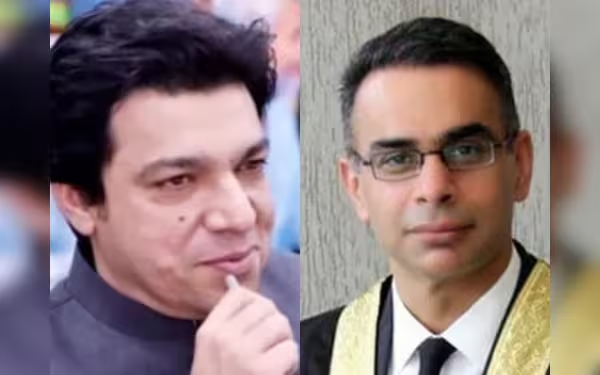Thursday, July 4, 2024 06:29 PM
Justice Sattar's Controversial Appointment Sparks Judicial Accountability Debate
- Dual citizenship not a barrier for judges in Pakistan
- Senator Vawda demands transparency and accountability in judiciary
- Call for judicial convention to address intelligence agencies' interference
 Image Credits: tribune_pk
Image Credits: tribune_pkThe Islamabad High Court clarifies dual citizenship eligibility for judges, sparking debate on judicial accountability and intelligence agencies' interference in Pakistan's judiciary.
The Islamabad High Court (IHC) recently made a significant clarification regarding the eligibility of lawyers with dual citizenship or residence permits to become judges in Pakistan. According to the country's Constitution, holding citizenship or a residence permit of another country does not disqualify a lawyer from serving as a judge. The court emphasized that details of dual citizenship are not required during the selection process for high court judges. This clarification came after the Supreme Judicial Council (SJC) approved the appointment of Justice Babar Sattar as an IHC judge, despite discussions about his green card issue.
Justice Sattar found himself embroiled in controversy when he raised concerns about intelligence agencies interfering in judicial matters, leading to a social media backlash. He later disclosed that a security official had threatened him over a case involving audio leaks. Senator Faisal Vawda demanded evidence from Justice Sattar to substantiate his claims of interference, highlighting the importance of transparency and accountability within the judiciary.
Senator Vawda also questioned the lack of written documentation on financial matters and raised doubts about Justice Sattar and former IHC Chief Justice Athar Minallah. He emphasized the need for judicial accountability and criticized the handling of controversial cases by judges involved in the Lettergate scandal. Vawda called for clarity on Justice Sattar's alleged involvement in a school chain and stressed the importance of addressing public concerns to uphold judicial independence.
In response to the concerns raised by Justice Sattar and five other IHC judges, a call was made for a judicial convention to address intelligence agencies' interference in judicial affairs and safeguard judicial independence.
The recent developments surrounding Justice Sattar and the Islamabad High Court shed light on the complexities and challenges faced by the judiciary in Pakistan. The issues of dual citizenship, external interference, transparency, and accountability are crucial for maintaining the integrity of the judicial system. It is imperative for all stakeholders to work towards ensuring a fair and independent judiciary that upholds the rule of law and serves the interests of the public.













